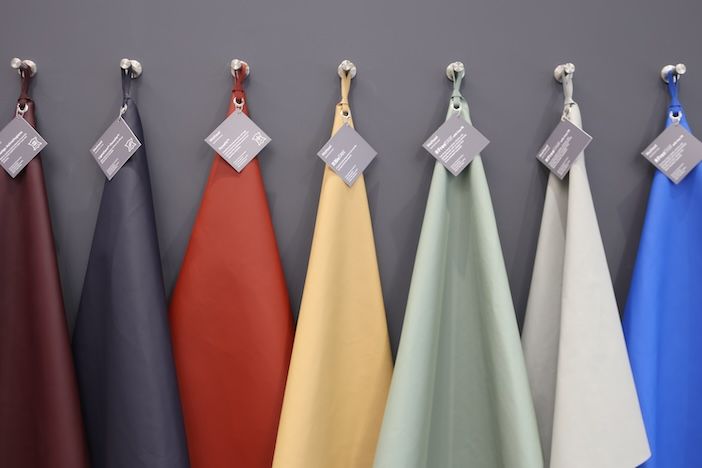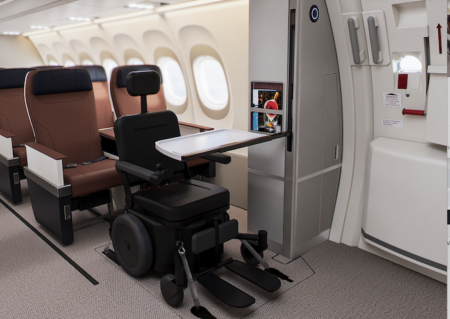Scottish Leather Group (SLG), parent company of Muirhead, a supplier of transportation leathers, and Bridge of Weir, a supplier of automotive leathers, has published its 2024 Environmental, Social and Governance (ESG) Report, the 21st annual statement of its progress in sustainable operations. The report states that the group is now 90% of the way towards achieving 100% zero greenhouse gas emissions in its operations.
SLG has a roadmap for the year ahead, with the goal of achieving net-zero (Scope 1 and 2) in its leather manufacturing operations by the end of 2025, achieving a target originally set in 2018 – and 20 years ahead of Scotland’s net-zero ambitions.
The ESG Report also states the company is on track to hit its target of sending zero waste to landfill by the end of 2025, with 89% of waste now recycled or recovered through its processes – an increase from 77% last year, with further improvement being targeted through a renewed focus on the supply chain.
The team at Scottish Leather Group discuss their 2024 ESG report in THIS VIDEO.
In September 2023, the group opened its £14m Super Tannery after seven years of development, which it says has reduced energy use by 82%, and water use by 42%.
Earlier this year, the company also launched two innovative tanning technologies, BioTAN and FreeTAN, enabling the production of next-generation bio-based and biodegradable leathers.

Over the last two decades, SLG has made multi-million-pound investments aimed at enhancing the sustainability of its leather production, with initiatives such as its patented Thermal Energy Plant (TEP) and Water Treatment & Recycling Plant (WTRP).
The company also offers traceability and transparency in its raw material supply, with 100% traceability to UK and Irish farms as of 2024 (98% of the company’s hides come from the UK and Ireland), ensuring zero deforestation and, thanks to the development of a new digital platform, compliance with the new EUDR legislation which is due to be introduced next year.
SLG also claims it has the lowest Life Cycle Assessment (LCA) impact in the leather industry, with an independently verified carbon footprint of 8kg CO2e/m² on average, helping customers reduce their carbon impact without offsetting.
Over the next year, SLG plans to invest in further sustainability initiatives, including the development of an on-site solar plant, which will directly supply 25% of its operating electricity.
“We are now rapidly accelerating towards achieving our target of 100% zero greenhouse gas emissions for our operations. Net zero leather manufacturing is within sight,” said James Muirhead, CCO at SLG.





